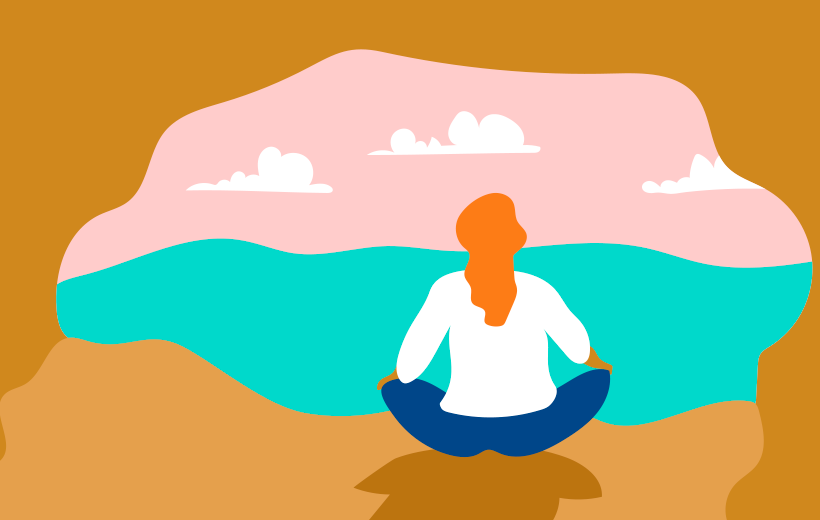BENEFITS OF MEDITATION
Changing the World
By Yongey Mingyur Rinpoche • 6 min read
By Yongey Mingyur Rinpoche • 6 min read
There’s an inextricable relationship between our minds and our external world. Whether we perceive our environment as gorgeous or hideous, useful or a hindrance, neutral or deeply meaningful — it all depends on what’s within us. If you can perceive it, it’s happening in your mind.

This is true even of your physical senses. Take taste, for example. You take a bite of food, causing your organs of taste to send signals to your brain; then quickly your mind forms a judgment: Delicious! Or, ugh, sickening! Or, hmm, needs salt.
All your perceptions of external phenomena are like this. If you think about it, it only makes sense. After all, objects outside of your mind don’t have the power to explain their existence to you. A spoon can’t say, “Over here! I’m a spoon! You can use me to eat soup!” Only you can identify it as a spoon and assign it a name and a function. This subjectivity is the reason that, if you want to change your outer environment, the best place to begin is your own mind.
Should you attempt to change the surroundings without transforming yourself, you’ll encounter a lot of pitfalls. The Dalai Lama has spoken often about this type of situation — people starting out with a pure intention to “change the world,” but then, once their endeavor is underway, they begin to get concerned about how it benefits them.
For example, let’s say you feel moved to plant one thousand trees. If your heart is completely pure, and love for the ecosystem is your sole motivation, it’s a wonderful plan.
However, it’s not good if — despite your good intentions — there’s a little voice in the back of your mind whispering, “This is gonna make me look really good,” or, “I can’t find a decent job, so maybe I should use this venture to launch an organization and make a profit.” If you don’t address your inner environment, even your altruistic actions can become self-interested. They can take a back seat to your personal issues. They can cause problems within your mind, or among your friends and community. The situation can get very convoluted.
“The outer environment and inner environment are really connected. If you want to change, then first you try to change your inner environment, and then you can change the outer environment”
– Mingyur Rinpoche –
Conversely, if you transform your mind in the service of helping the external world, your actions will have tremendous power. Without your mind, you can’t do anything. It’s the control tower, the force guiding and controlling your actions, navigating you from points A to B. If you harbor any doubts on that point, recall that in this very moment, if your mind didn’t think, “Okay, time to go on to the next thing,” you’d be staring at this sentence for the rest of your life. In order to be of assistance to other sentient beings, your head and heart need to be in the right place. It all starts from the inner environment.
If you enjoyed reading our articles, please join our mailing list and we’ll send you our news and latest pieces.
Learn meditation under the skillful guidance of world-renowned teacher Yongey Mingyur Rinpoche at your own pace.

In his approach to teaching meditation, Mingyur Rinpoche integrates traditional Buddhist practice and philosophy with the current scientific understanding of the mind and mental health – making the practice of meditation relevant and accessible to students around the world. Mingyur Rinpoche is the author of the best-selling book The Joy of Living: Unlocking the Secret and Science of Happiness, as well as Joyful Wisdom: Embracing Change and Finding Freedom, In Love with the World: A Monk’s Journey Through the Bardos of Living and Dying, and many others.

Working in a fast-paced corporate environment, Lita Sands applies key Joy of Living principles to not only keep her sanity but find connection and joy.

“When we address issues in the outer world, we start by looking inward, and we take care of the inner environment so we can be in better shape to care for the outer environment.” – Mai-Linh Leminhbach

Drawing on decades of meditation experience, Myoshin Kelley offers practical and heartfelt guidance for anyone wishing to deepen their meditation practice.
If you enjoyed reading our articles, please join our mailing list and we’ll send you our news and latest pieces.